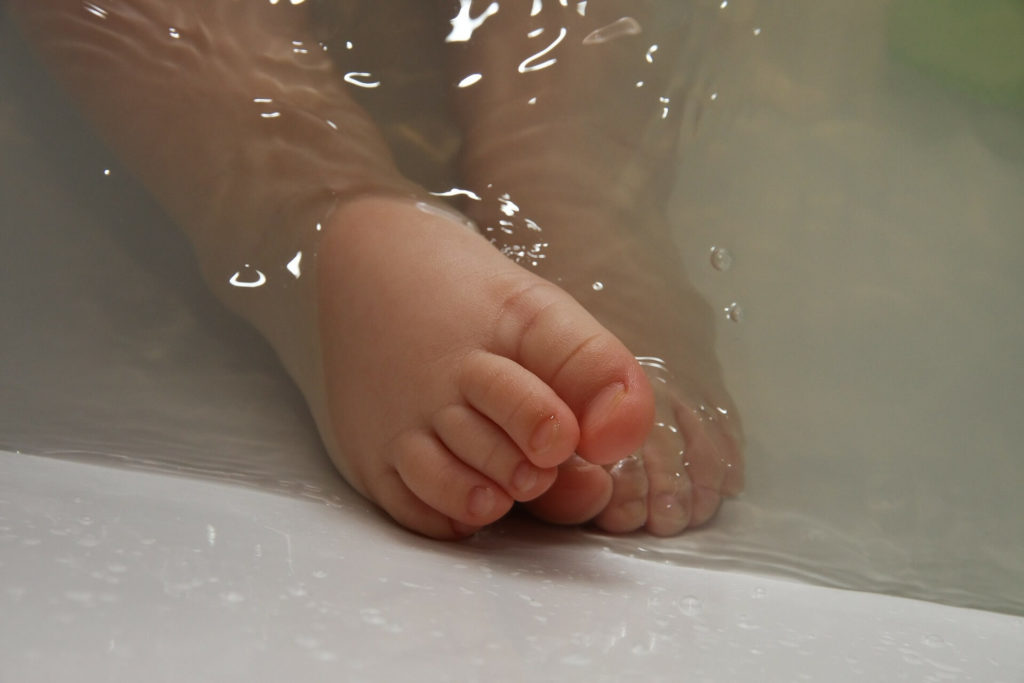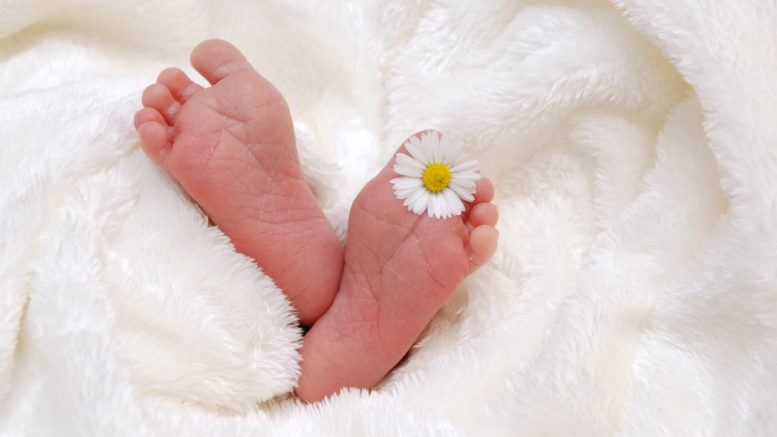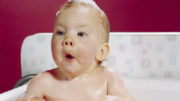Being a new mom comes with its own set of challenges as you’re getting into new things ranging from soothing a crying baby to breastfeeding. New moms or not they all feel nervous handling fragile newborn. Though with the right information and patience, caring for a newborn can become an exciting experience.
You have achieved one challenging task of bringing forth a baby with ease, and now the daunting task of raising the young one is unnerving you. You look at the baby lying peacefully in her brand new crib. Her beautiful face and tiny hand have enchanted you and what you can think of is protecting her from unforeseen harm. With patience and time, you’ll learn to take care of her. Every passing day will help you understand the signs of drowsiness, hunger, and reason for crying. And soon you will be a pro. Here are some tips for new moms for easier start.
Handling a Newborn

Clean your hands or disinfect before you hold the baby. Babies have a weak and vulnerable immune system, so they’re at risk of infection. Ensure everybody who are caring for the newborn sanitizes his or her hands.
Ensure the baby is securely set into a car seat, carrier or stroller. Limit activities that could be too bouncy or rough.
Don’t shake the infant, whether in frustration or play. Vigorous shaking can result in brain bleeding and even death. In case you want to wake up the child, don’t shake instead, blow gently on a cheek or tickle your baby’s feet.
Support the newborn’s neck and head. Support the head while carrying the young one and cradle or when laying the little one down.
Remember the baby is not ready for a rough engagement, such as throwing in the air or jiggling her on the knee.
All About Diapering
You will decide whether to use disposable or cloth diapers. Whichever you pick, the baby will soil it about 70 times a week and averagely ten times a day.
Ensure you have a clean diaper, diaper wipes, diaper ointment, and fasteners within contact so that you will not leave the baby unattended at the changing place.
Using wipes or washcloth and water, gently wash the genital area fresh. While drying a girl child, swab her underside from the front to the rear to prevent urinary tract infection. When cleaning the boy’s diaper, do with care because disclosure to air makes him urinate. To heal or prevent rash, apply ointment. Rinse your hands thoroughly after that.
Soothing And Bonding

Bonding takes place through the receptive period in the first days to weeks after birth when parents and caregivers make a bond with the newborn from this early stage. Physical contact promotes an emotional relation and connection.
For the newborn affection contributes to boosting their emotional growth, affecting development in physical growth. Little ones thrive from having parents love them unconditionally.
Infants love vocal sounds like singing, babbling, talking and cooing. Musical mobiles and baby rattles are good ways to stimulate baby’s hearing.
Swaddling works fine in some kids in the first few weeks, a soothing technique new moms should discover. Swaddling keeps the newborn warm and seems to give newborns a sense of comfort and security.
Caring for a Newborn Sleeping
Infants sleep for 2-4 hours. Their digestive tract system is so small that it needs food after every few hours, so expect not the newborn to be asleep throughout the day or night.
Most babies sleep between 6-8 hours in the third month. Each child has her sleeping pattern, so if she appears healthy and gaining weight, don’t despair if she doesn’t sleep for 8 hours.
ALWAYS place a newborn on their back to nap to minimize on chances of sudden death syndrome. Interchange the posture of the child’s head from night to the other to reduce the growth of the flat spot on a particular side of her head.
Burping And Feeding The Baby
Whether feeding the infant by bottle or breast, you will face a puzzle of how often you should do it. The newborn should eat on demand; every time she seems hungry. The child might cue by making sucking noise, inserting fingers in her mouth or crying. The feeding interval should be 2-3 hours. When breastfeeding nurse for about 10-15 minutes per breast and the formula feeding about 2-3 ounces at each feeding.
A satisfied baby produces several stools and six wet diapers a day gains weight regularly and sleeps well. Newborn regularly swallow air during feeding, making them fussy. To avoid this burp the baby frequently. Burp the baby always after feeding and keep her in a standing posture for about 10-15 minutes to prevent spitting back.
Newborn Bath Careing
Give the infant a bath after:
- Circumcision heals (about 1-2 weeks)
- The navel heals completely, and umbilical cord falls off (approximately 1-4 weeks)

Some might think that when caring for newborn everyday bathing is a must. However, everyday bathing might dry the skin. It’s advisable 2-3 times bath a week in the first twelve months. For the sponge bath, choose a flat, safe surface in a warm room. Undress the newborn and wrap her in a towel. Wipe her eyes using a soft, clean washcloth moistened in water, beginning with one from the inner spot to the outer one. Using a moistened washcloth wipe her ears and nose clean.
Using infant shampoo make a lather and soothingly swab her head and rinse dry. Then clean other body parts paying attention around the neck, genital area, behind the ears and under the arms. After cleaning wrap the baby in a towel covering her adequately.
While bathing newborn, NEVER leave it alone.
Umbilical Cord and Circumcision Care
Umbilical cord care is vital in infants. When it comes to caring for a newborn in this particular state, some health care providers suggest to leave the area alone, but others recommend rubbing alcohol until when the cord end dehydrate and drops off.
A newborn’s navel area should not be immersed in water before the cord end falls and the place heal. The cord will turn color from the previous yellow to black or brown.
After circumcision, the penis tip is enclosed with gauze coating, and petroleum jelly is applied to prevent the won’t from attaching to the cloth. Apply petroleum jelly at the penis tip after changing the diaper and cleaning. Pain or redness of the penis heals in days.
You might be anxious about caring for the newborn. However, in a month’s time, you will develop a fitting schedule and be taking care of your dearest like an expert.





